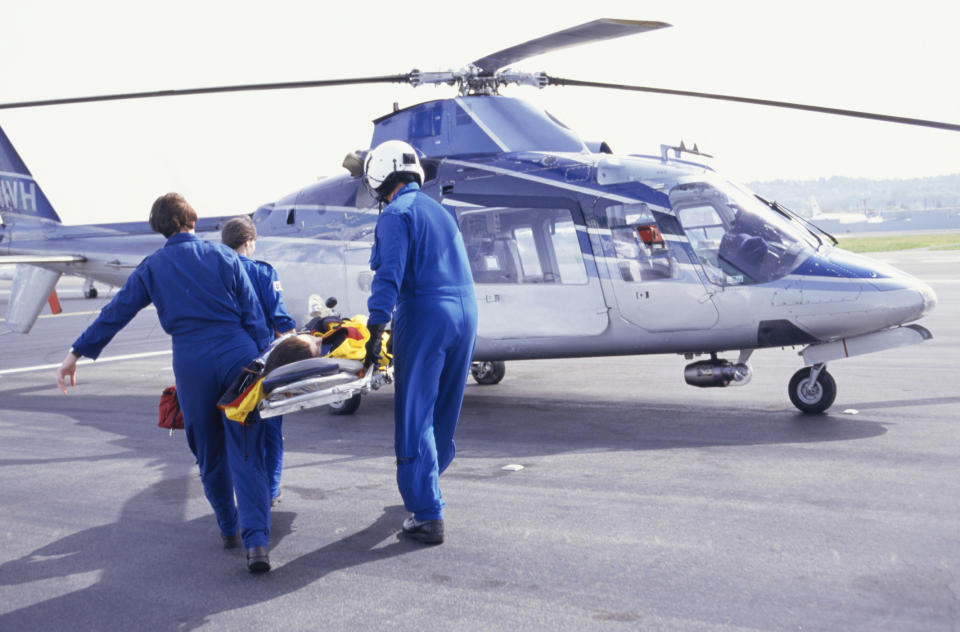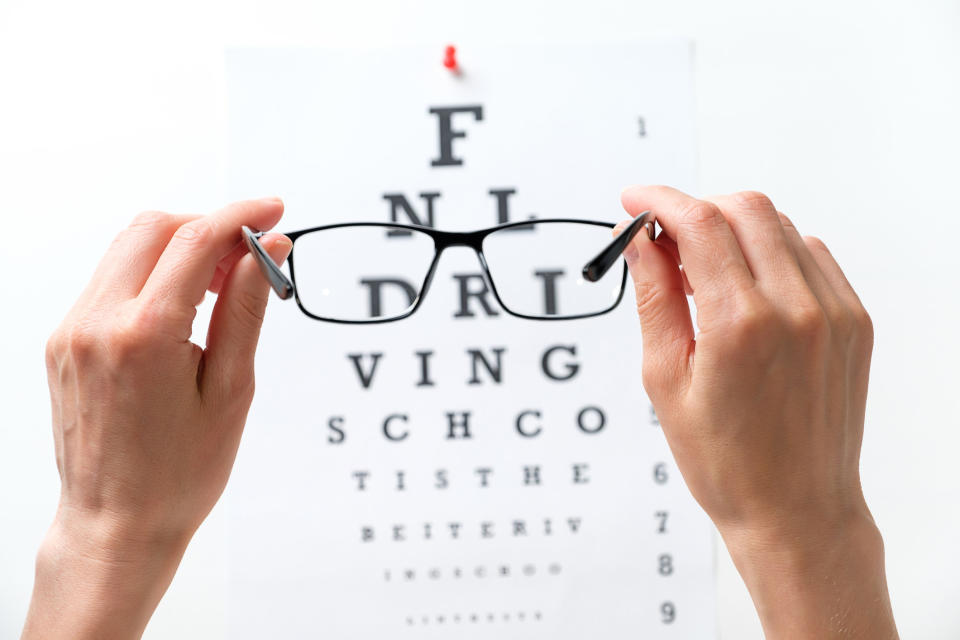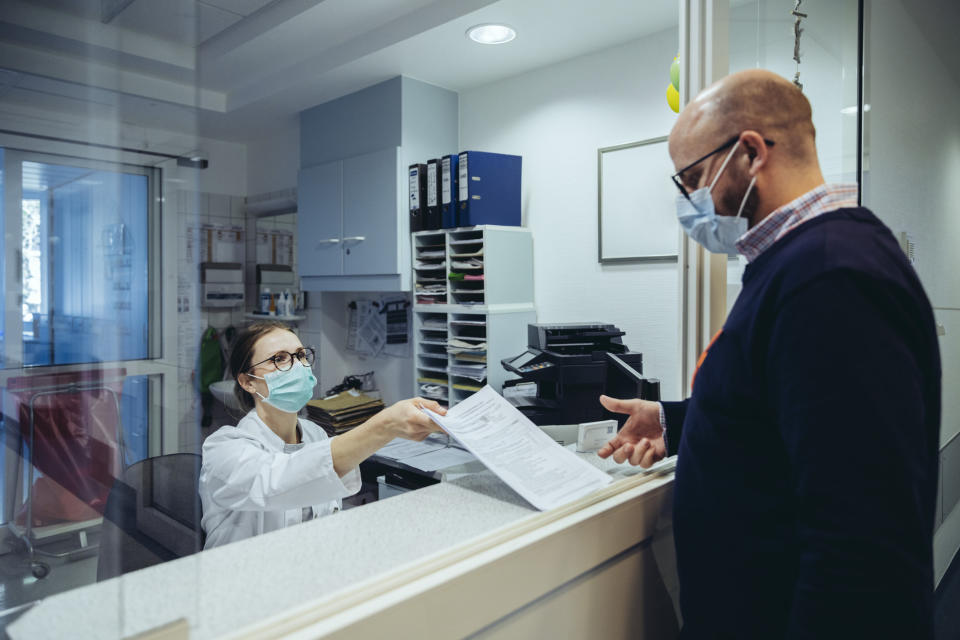20 Confessions About The Healthcare System From The People Who Work In It
We recently shared a post where healthcare workers debunked some of the common myths about their industry and their jobs. We received even more clarifications and confessions from healthcare professionals that are vital for people to understand, so here are 20 more you ought to know:
1."Pharmacists do more than 'count pills.' Of course, most of the community sees us at CVS/Walgreens, but we are in hospitals, clinics, labs, in government, and so many other places! I am a pediatric pharmacist at a hospital, and no medication (oral, IV, topical, nasal spray, inhaler, etc.) is given to a child without being verified and approved by a pharmacist. We're usually the healthcare advocate for patients receiving unnecessary medications."
—Anonymous
2."Fixation on antibiotics is not only wrong, it's also very, very dangerous. Overuse of antibiotics is precisely what leads to antibiotic-resistant bacteria. So, don't EVER ask for antibiotics for something that can't be treated by antibiotics (colds, viruses, etc.). And, if you do get a proper antibiotic prescription, finish the entire cycle. Not completing the cycle may result in some bacteria surviving and becoming antibiotic-resistant."

3."I've been working in GI clinical research for eight-plus years. Please be comfortable learning and talking about GI health and poop. I would read so many medical records where people ignored symptoms because they were either embarrassed or didn't know what they were experiencing was something to be concerned about. Everyone poops — don't be embarrassed!"
4."I was a medical aircraft dispatcher for eight years. Being medevac can be incredibly expensive because you're essentially in a flying ICU. On average, it took us about a million dollars per year just to maintain a single helicopter base. That wasn't operating cost — that was just to have the base there and available. The pilot, nurse, and medic are top-of-the-line professionals with enormous amounts of experience and training. Plus, the helicopter itself is super expensive. I've read plenty of articles talking about how greedy medflight companies are and that they overcharge, but the reality is that getting medevaced in a helicopter is incredibly costly! And, I beg you, don't be stupid. A lot of people ended up on my helicopters because they drove drunk or made foolish decisions and got hurt."

5."I'm a medical social worker in a level 2 emergency room. What a lot of patients believe is that the social worker is only there to take children away from their parents. I have NEVER taken a child away from their parent/caregiver. We are a part of the medical team that helps assess, advocate, provide resources, etc. We can find placement for patients who might need drug or alcohol treatment, assist in helping a family make end-of-life decisions, be there for families whose loved one has tried to commit suicide or has committed suicide, find a family/guardian for a runaway, etc. We have very extensive medical training and backgrounds (I was a paramedic and also an Army medic). We are on your side and want what is best for you."
6."I used to work as a dispensing optician at an optometrist's practice. Patients treated me like dirt because they thought my job was like a retail assistant who was there to sell them glasses and try to overcharge them. The reality was I had to do a lot of study, learn the science and technology of how lenses are made to your exact prescription and fitted precisely to your frames, and take measurements such as pupillary distance, height, and vertex. I never tried to upsell. If I told someone they should get a more expensive lens type or frame, it was because they needed it. All medical roles are important, and every role requires hard work and a lot of training."

7."Former registrar here. I used to check people in at a hospital for most of their appointments, but my job was mainly in the ER. So many people would ignore getting checked in and would scream about paperwork, especially in the ER. If it was a serious situation, I would just get name and date of birth. Without this information, doctors are extremely slowed down. No medical history, drugs can’t be dispensed, lab orders don’t go through, etc. Registration isn’t a barrier. It’s a pain, but without this information, you are doubling the treatment time."
8."Pharmacy intern here. I PROMISE you we have NO control over the prices of your meds. That's between the manufacturer and your insurance. We try our hardest to get the price down as much as we can, but sometimes our hands are tied. Between the time we get the Rx to the time you pick it up, we've done everything we can to get you a fair price. We've called your PCP to see if we could find a cheaper alternative, and we've used whatever savings we could find, but some meds are just wildly expensive, and we can't do much about it. Also, when your insurance needs prior authorization in order for them to cover your medication, CALL YOUR DOCTOR! We have NOTHING to do with that, so PLEASE stop yelling at us about it. We're just the messengers."

9."It's amazing how many people don't consider those of us who work in veterinary medicine to be part of the healthcare industry. Veterinary technicians and assistants regularly perform all the duties human nurses do, plus we take X-rays, run lab work, fill prescriptions, reassure owners, and usually do all the cleaning/janitorial work as well. All of this while our patients try to bite, scratch, squirm, and fight us! Oftentimes, we are paid less than $20 an hour to do all of that *and* deal with owners that berate us and treat us horribly. We love your pets and do everything we can to help them. Please try to be nice when you go to the vet. I promise you, we really do notice and appreciate it!"
—Anonymous
10."Nurse here. Please be honest with your healthcare professionals. We can't help you properly if you're not. If meds are prescribed and you find that they give you intolerable side effects, don't stop taking them and not tell us, or not mention why you stopped. There are probably alternatives that would be better for you. If you don't, we think you're taking them as prescribed and then have to do something because we don't think it's working. We need to know everything, whether you think it's relevant or not, so that we can decide what needs to be done."

11."I've worked with dementia patients for almost 20 years now, and I think the biggest misconception people have about the elderly is that they're all frail and weak. Sure, some can be, but it's the same with all people. Everyone is different, and goodness gracious, a lot of older people are strong as heck (and can beat you up just like any angry person in a bar!). They can be hyper, silly, unable to sit still, and super athletic. I've met more able elderly people in my career than the 'granny in a sweater in front of the TV' stereotype. All the way up to 105. Best aging advice? Keep eating and pooping; that's how your body works. Drink lots of water."
12."I work in registration for an ER. The one thing I would like people to know is that there are A LOT OF LAWS that prevent us from saying and doing stuff. You would not believe the amount of people that yell at me for not getting their non-life-threatening injury back fast enough when we have a full ER or get mad at me when I don't let them or their whole family back when the doctor, nurse, or patient themselves doesn't want visitors. We have a lot of laws we MUST abide by, or we will get fired or sued. YOU ARE NOT AN EXCEPTION TO THESE LAWS."

13."I don’t think people understand just how much of healthcare depends on lab test results. Per the CDC, 70% of today's medical decisions depend on laboratory test results. The lab and radiology staff are an integral part of the healthcare team."
14."Medical biller here. Please, please, PLEASE learn about the policy YOU chose. Know your deductible, copay, and coinsurance. Just because something is 'covered' doesn’t mean you won’t owe a thing. The amount of times I've been yelled at because someone wasn’t aware of their own deductible/coinsurance is one too many."

15."Hospital pharmacy technician here. Hospital care is a team effort, but there is still a perceived hierarchy, both by the public and professionals. Too often, my job is looked down upon, especially by those providing the face-to-face patient care, when in reality the care they provide is reliant on my role!"
16."My hat is off to anyone that steps foot in the medical field. I was an occupational therapy assistant for 20 years. The comments I would get about being 'only an assistant' — ma'am, sir, I had to go to school for a degree and take a test to be nationally certified and licensed. While the occupational therapist might be doing the paper work and testing you, I am the one who will be doing 99% of your treatment. I need to know a variety of diagnoses, treatment plans, and precautions. I can treat anyone from age 0 to end of life."
"And no, I am not here to find you a job. I am here to help you get back to the way of life that you knew or as close to it as possible. If I am treating kids, I am helping them with the occupation of play and have to work with a variety of different diagnoses on that front as well. Just remember, we are there to help you become as independent as possible!"

17."I work in insurance, and yes, this field is terrible about money-gouging, but I do want to say that we bill according to legal contracts that the employer writes with a broker or lawyer. So many issues arise because none of these parties actually understand insurance nor medical billing. But, once there's a signed contract, we are legally bound to it. If all parties understood it better, I think things could maybe even start to change. Also, we get hospital bills, and they are RIDICULOUS and overcharging for everything, so yes, insurance is corrupt and needs an overhaul, but so does the medical billing process. That being said, I work in a field that exists to ensure as little over-billing as possible for chronic health patients."
"Essentially, I make sure those patients (or their employer, whoever pays the health insurance premiums) never pay a penny more than they have to because I take their bills, review them, then send them to multibillion-dollar corporations. And you can believe I will bend over backward to nickel and dime that corporation to death to ensure the patient gets the treatment without needing to pay more than they have to. I have hounded these corporations for more than two years for $100 in the past, and I will continue to do so."
—zemt
18."As a paramedic, I ask for patient medication lists and am often told, 'You don’t need it. The hospital has it.' I’m a medical professional with a wide scope of practice. Your meds are essential to me providing proper care. Call a cab if you just want a ride to the hospital."
—Anonymous

19."RN here. Please don’t blame us for lack of staff. I work in an outpatient clinic giving chemotherapy, shots, iron infusions, and other meds. Patients get very angry when they have to wait to get their treatment. I understand you’re tired and took time off work to make your appointment. But I can’t work any faster. We need to make sure your labs are good, you’re actually due for treatment, etc. We are extremely careful on administering medication and have to practice safely. We can’t be rushed. Being rushed can cause fatal mistakes. Sometimes your treatment may get delayed because nurses have to help a patient who's having a severe allergic reaction to their meds. Please don’t yell at us or the receptionist. We are doing our very best. I can’t tell you how it feels when we are working short-staffed and having patients yell at us."
20.Finally: "I wish people treated their primary care doctors and nurse practitioners with more respect. Patients act as if PCPs aren’t as important because they didn’t specialize in one area. However, it’s your PCP who has to stay on top of current info for EVERYTHING, and they’re the ones who are going to figure out if you have anything wrong BEFORE they send you to a specialist. Also, please stop treating doctors like you’re ordering off a fast-food menu. Insurance is costly, and everyone wants the most out of it — however, you can’t walk in and demand specific drugs/treatments/paperwork be done right away. Your doctor cares about your health and will work with you; just open yourself up to a real discussion about yourself and your health."
Have you ever worked in healthcare? Is there anything you'd like people to know about your job or the industry? Share in the comments!
Note: Submissions have been edited for length and/or clarity.

